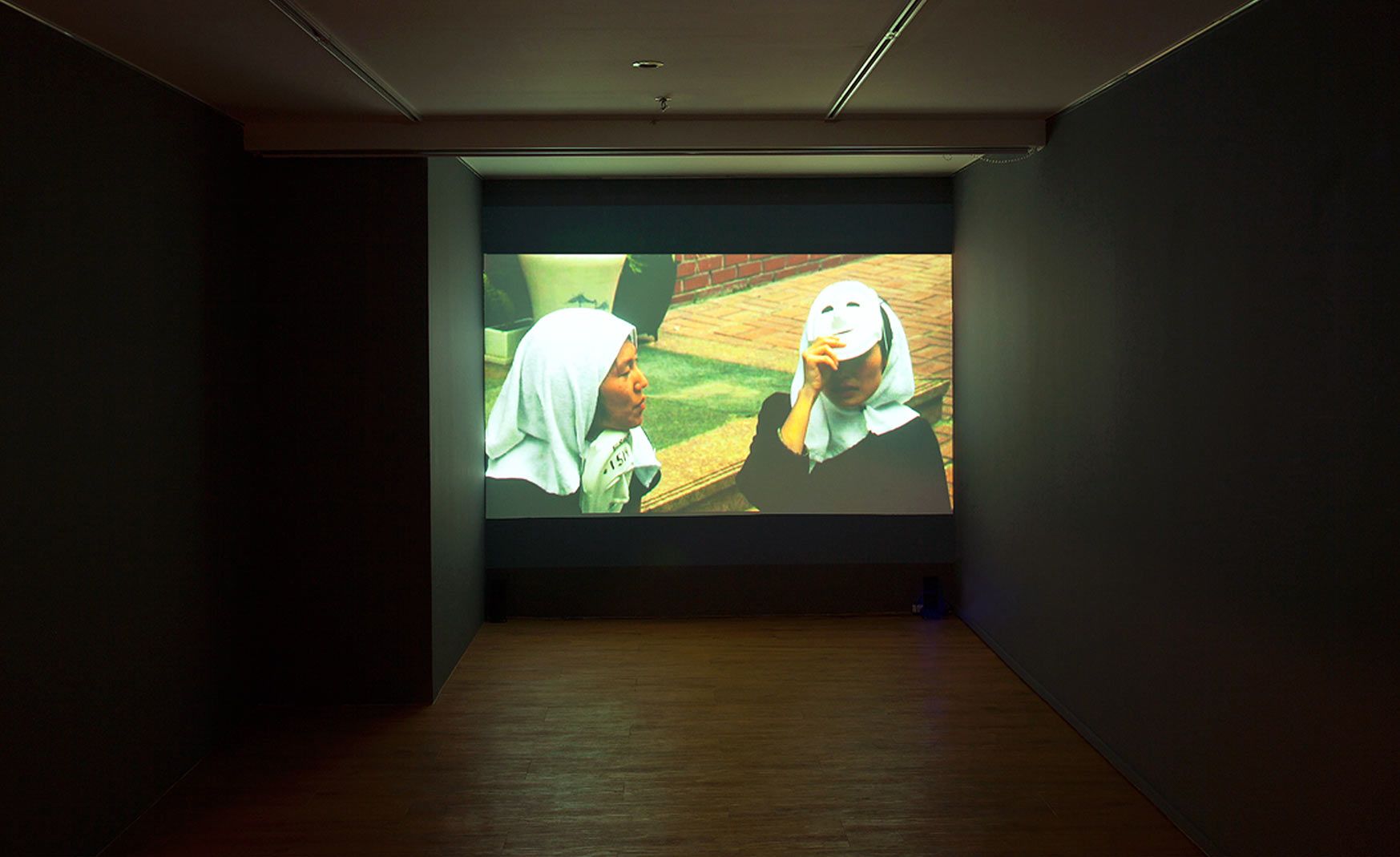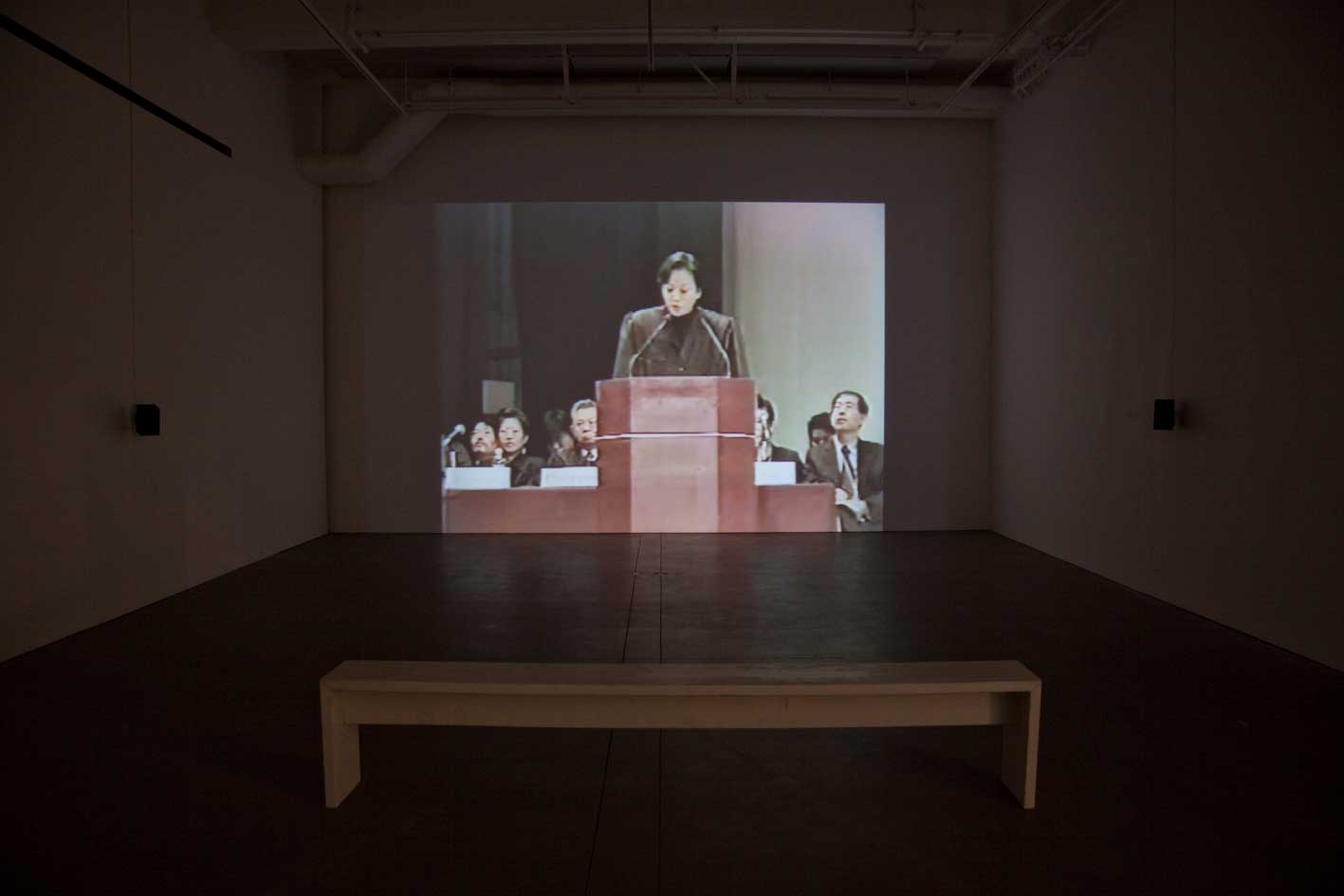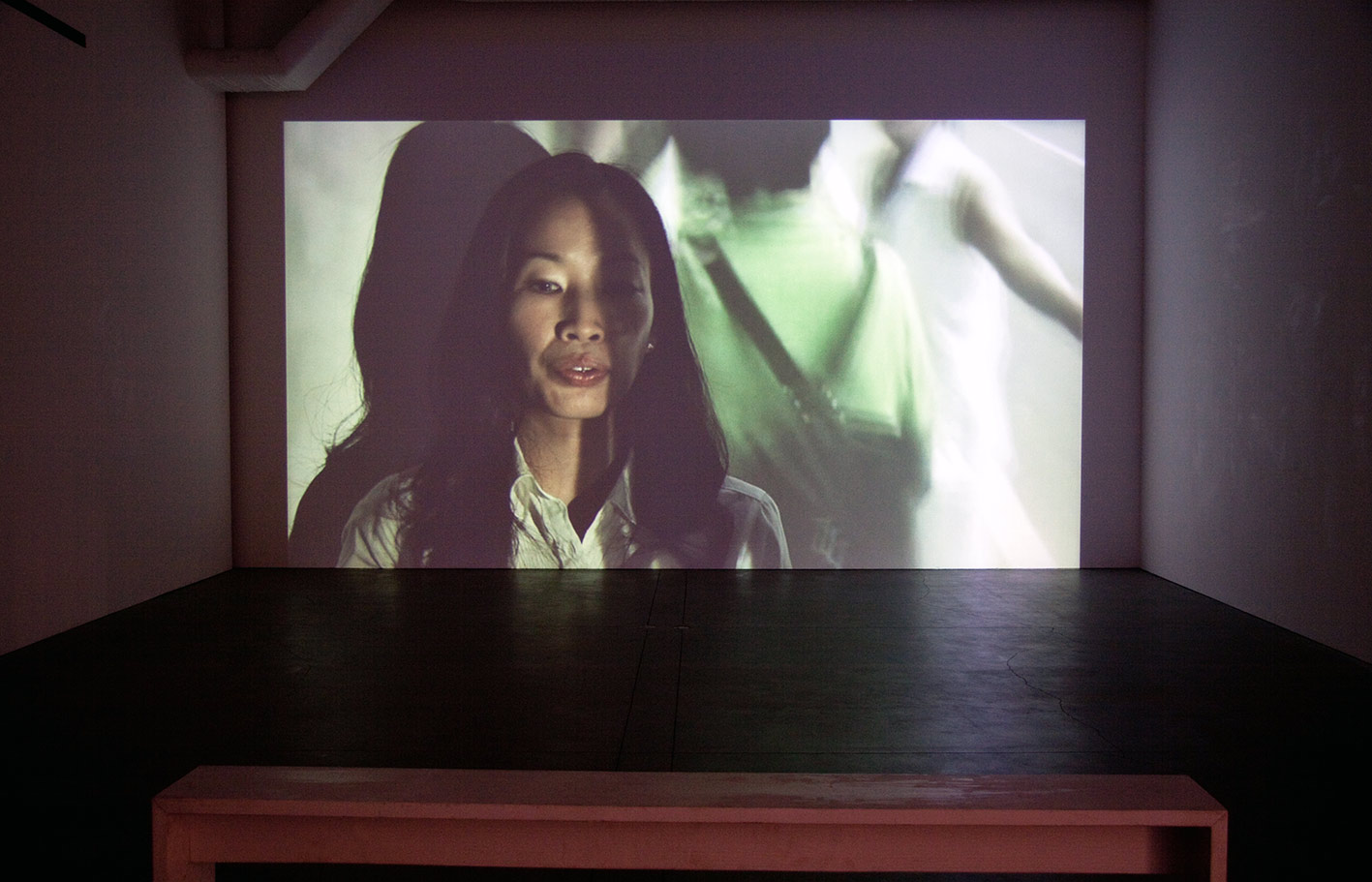THE WOMAN, THE ORPHAN, AND THE TIGER, 2010
HD Video 16:9, single channel. 72 minutes. Color / B&W. Jane Jin Kaisen & Guston Sondin-Kung
The Woman, The Orphan, and The Tiger begins with the sound of women’s voices speaking of histories of violence, of things repressed and silenced. Gradually, their voices accumulate into a cacophony of pure sonic intensity against a slow-motioned image of a woman survivor of Japan’s military sexual slavery who, in the absence of words to account for her suffering, gets up and walks into the center of a war crimes tribunal courtroom and gestures wildly before she faints.
The Woman, The Orphan, and The Tiger explores how trauma is passed on from previous generations to the present through a sense of being haunted. Following a group of transnational adoptees and other women of the Korean diaspora in their 20s and 30s, the film unveils how the return of the repressed confronts and destabilizes narratives that have been constructed to silence histories of pain and violence inflicted onto the bodies and lives of women and children. A genealogy is created by relating the stories of three generations of women: the former ‘comfort’ women who were subjected to military sexual slavery by the Japanese military between World War I and World War II – women who have worked as sex workers around US military bases in South Korea since the 1950s to the present – and transnationally adopted women from South Korea to the West since the Korean War.
Composed of oral testimonies, poetry, public statements, and interview fragments, the filmic narrative unfolds in a non-chronologic and layered manner. By reinterpreting and juxtaposing historical archive footage with recorded documentary material and staged performative actions, multiple spaces and times are conjoined to contour how a nexus of militarism, patriarchy, racism, and nationalism served to suppress and marginalize certain parts of the population and how this part of world history continues to reverberate in the present moment.
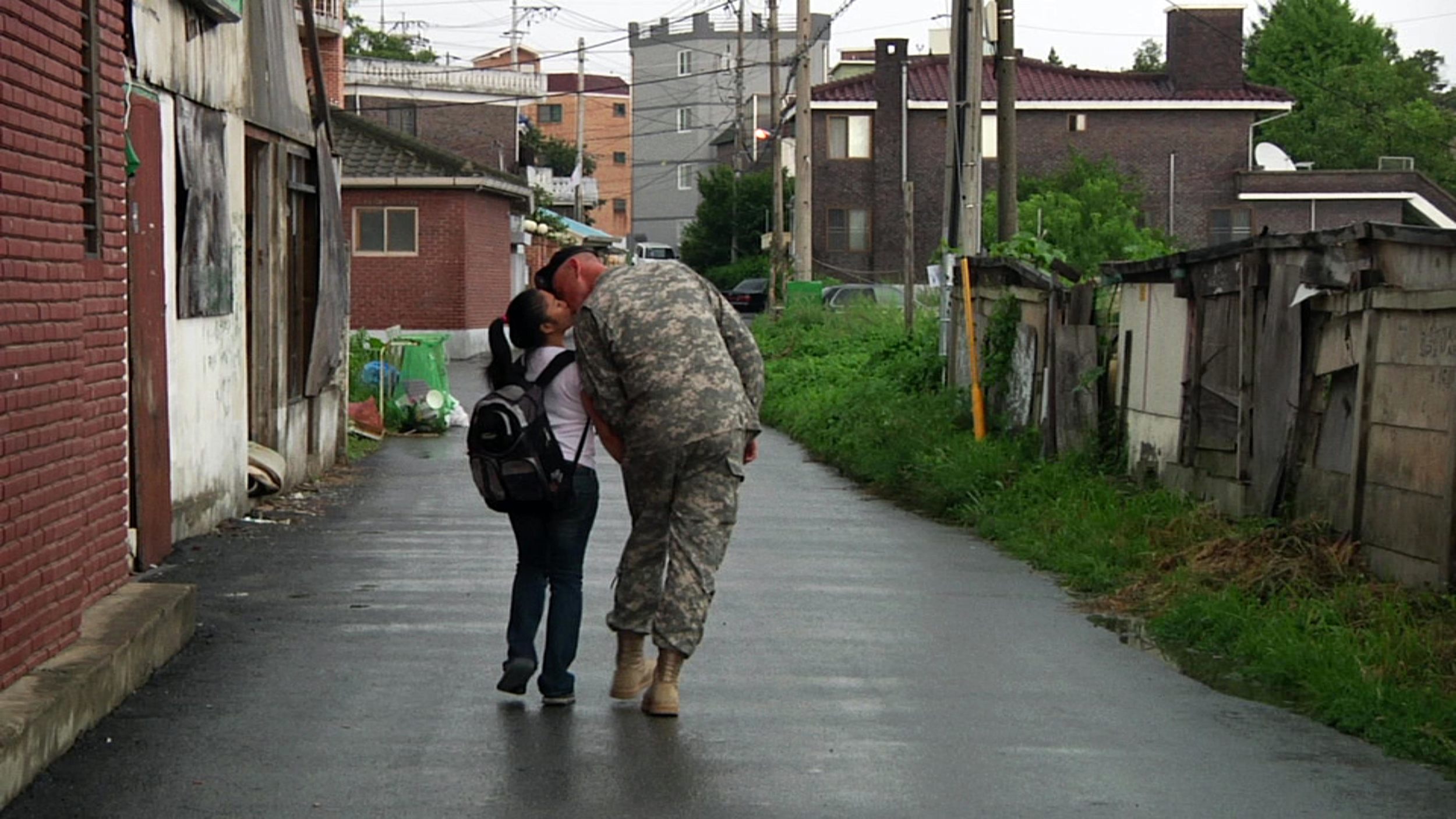
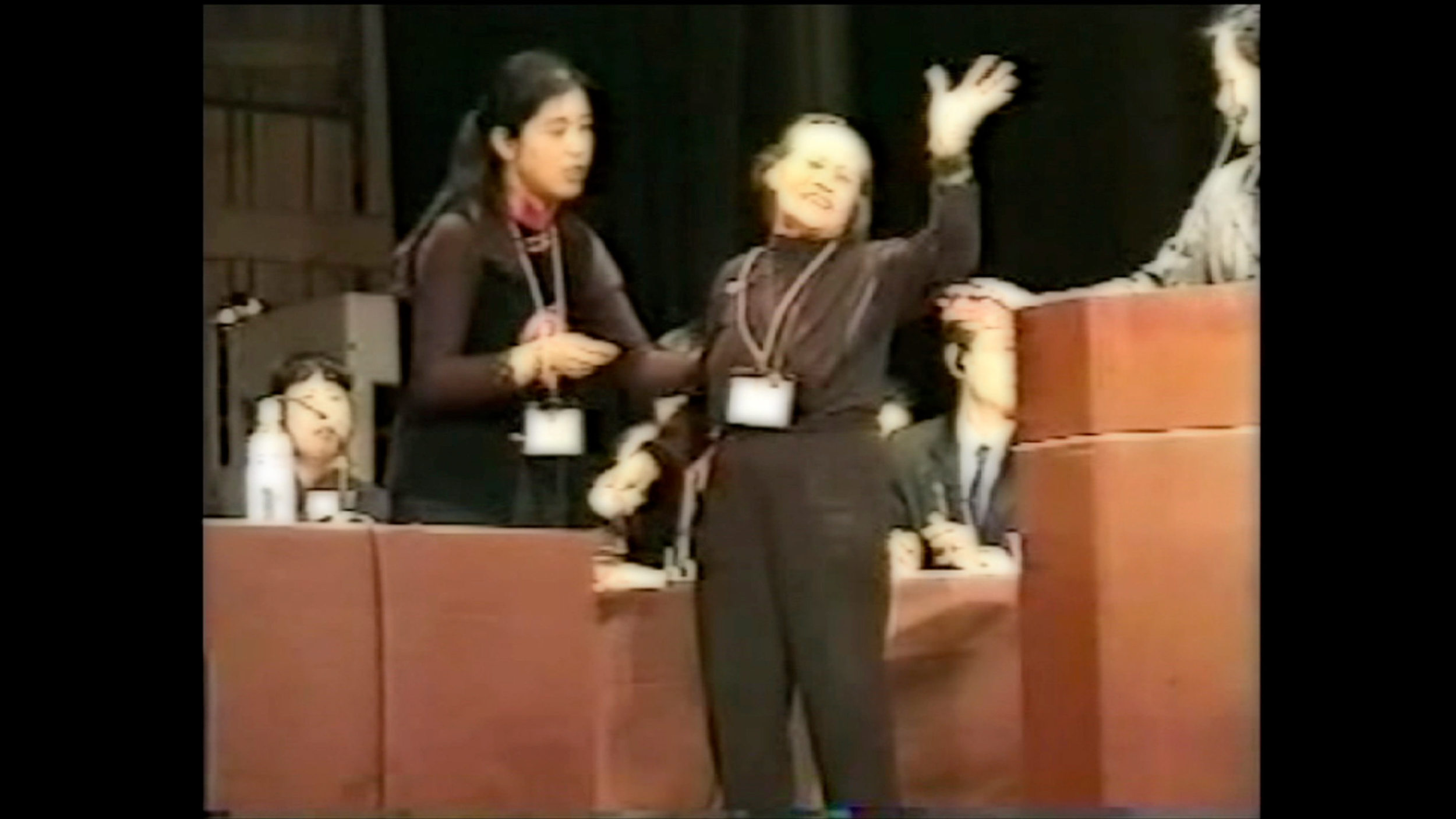
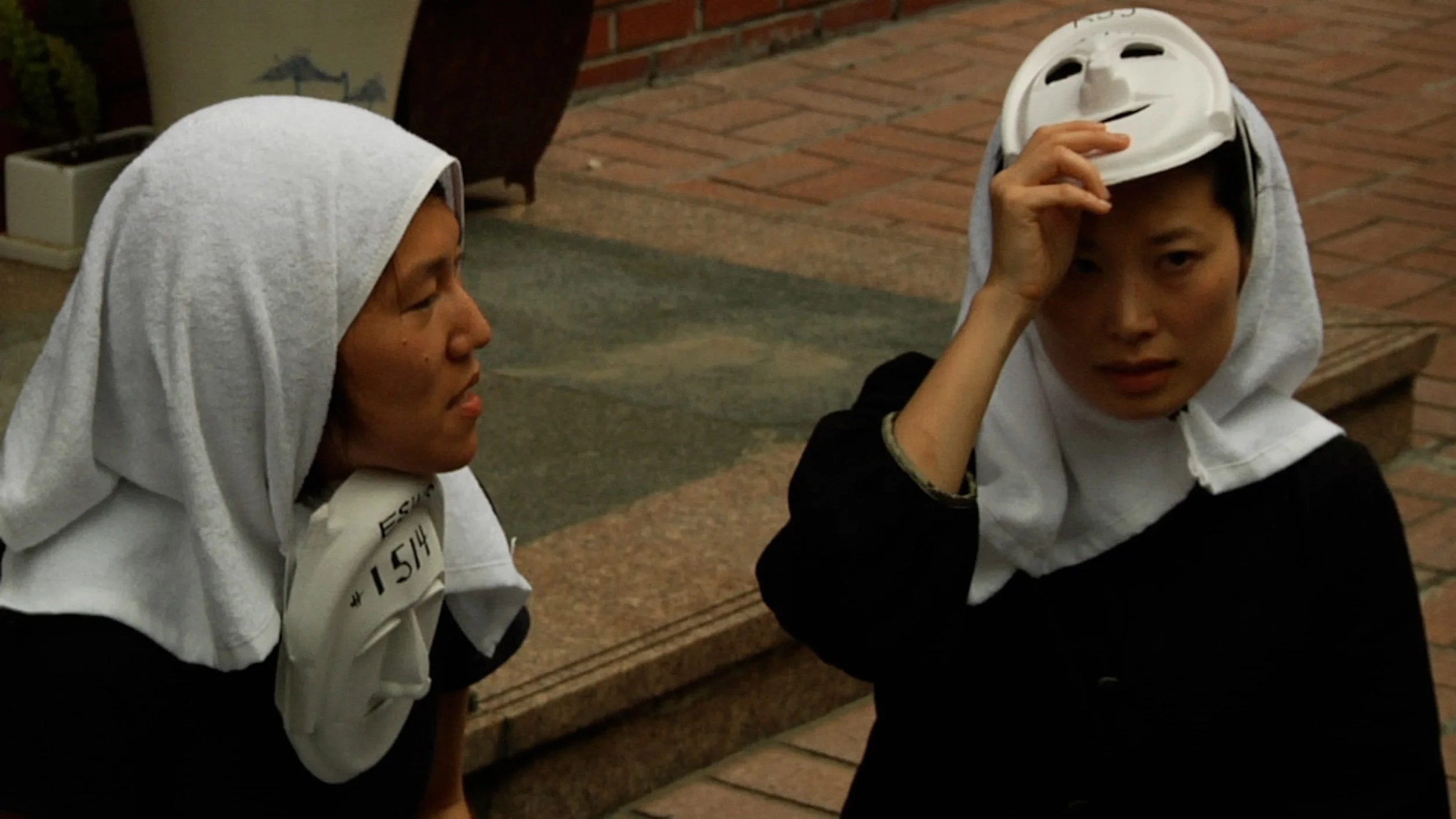
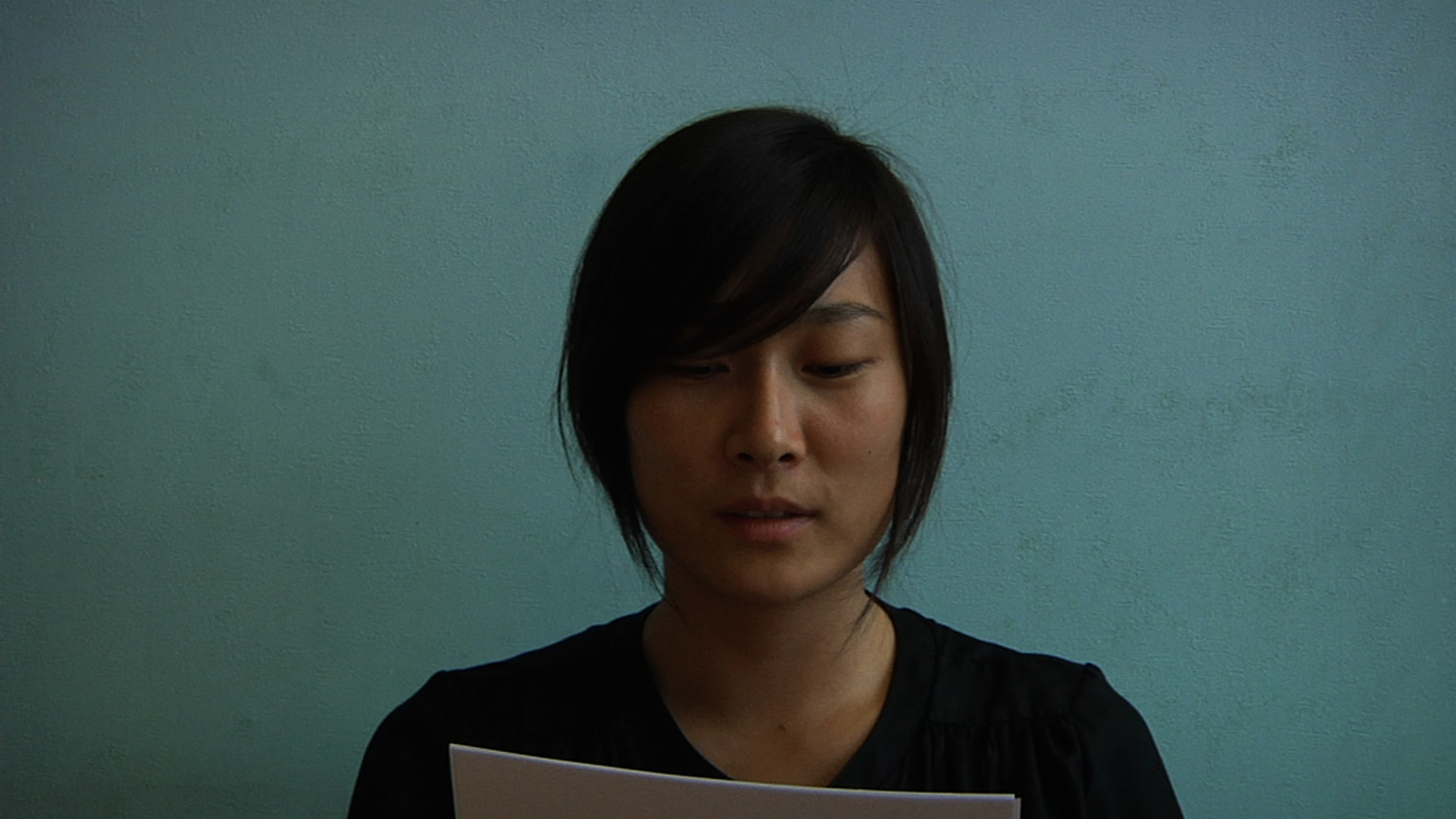

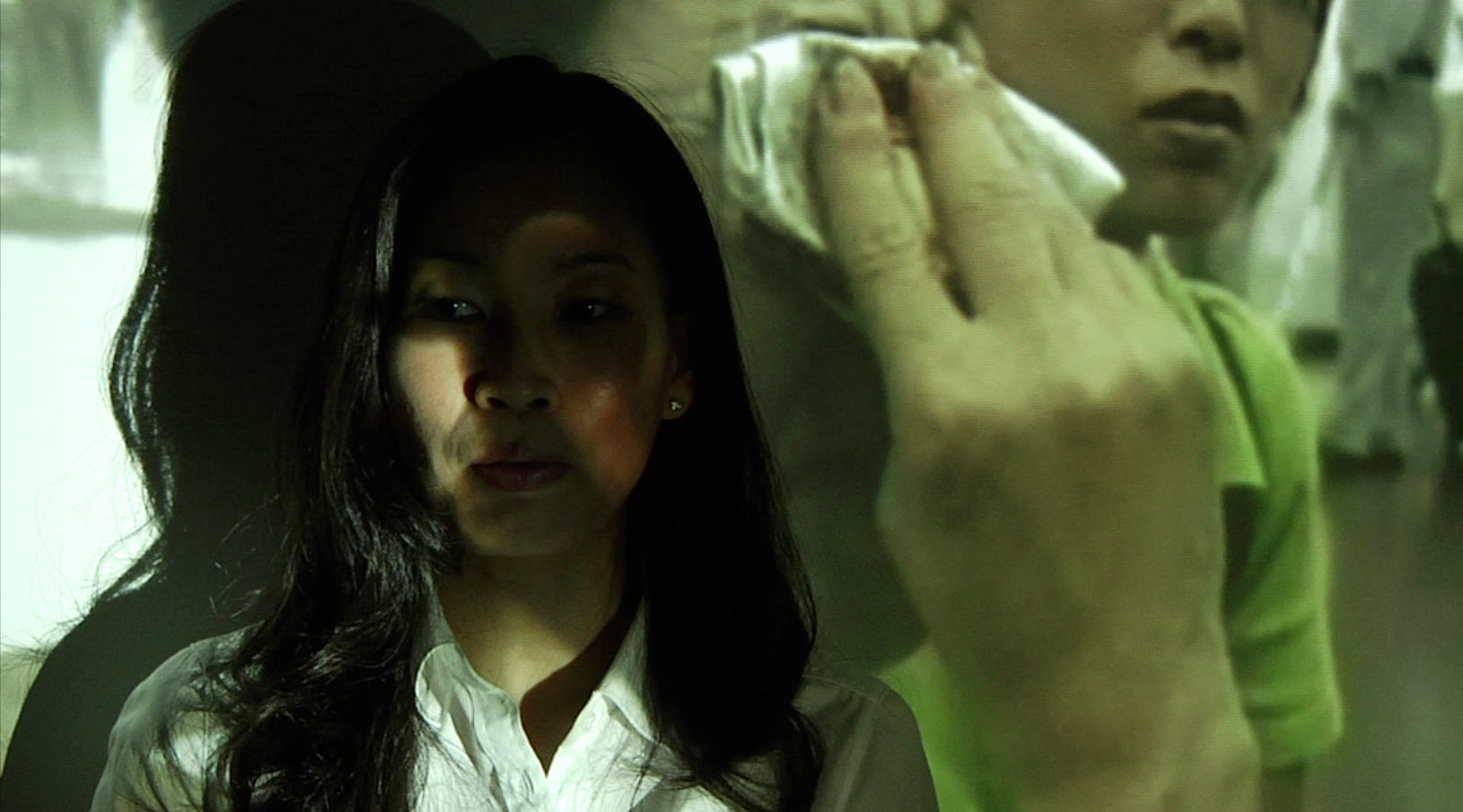


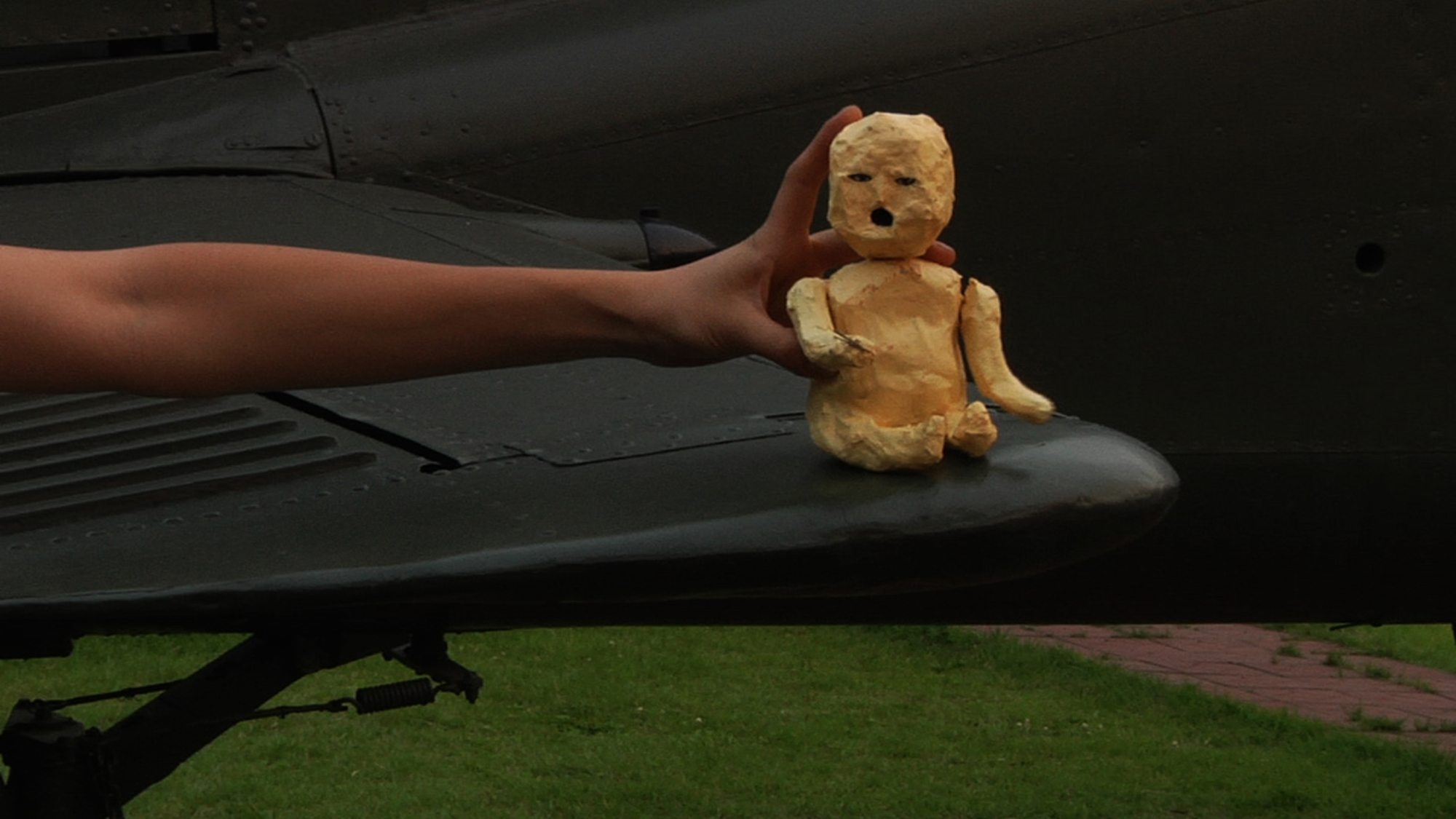
Video stills: The Woman, The Orphan, and The Tiger
Video excerpts: The Woman, The Orphan, and The Tiger
CREDITS
Voices: Grace M. Cho, Isabelle, Jane Jeong Trenka, Jennifer Kwon Dobbs, Maja Lee Langvad, Mihee-Nathalie Lemoine, Myung Ki Sook, Pak Chun Sung, Rachel, Soni Kum, Tammy Chu, Yu Young Nim. Directed by: Jane Jin Kaisen. Concept and Editing: Jane Jin Kaisen & Guston Sondin-Kung. Written excerpts from: Jeong Trenka's Fugitive visions, Maja Lee Langvad's Find Holger Danske and Find Holger Danske Appendix. Video projected films used as backdrop: Searching from Go-Hyang and Resilience by Tammy Chu. Video material kindly lent by: Video Juku, ASK – Adoptee Solidarity Korea, TRACK – Truth and Reconciliation for the Adoption Community of Korea, Steffen Nygaard. Research assistance: Rev. Do Hyun Kim, Director of Koroot, Su Zhiliang, Director of the Chinese Comfort Women Research Center, Yu Young Nim, Director of My Sister’s Place (Durebang), Jacob Nielsen, Chenye, Uni Park, Kim Stoker, Tobias Hubinette, Hwe Sook Lee, Grace M. Cho, Tammy Chu, Jennifer Kwon Dobbs, Soni Kum, Maja Lee Langvad, Jane Jeong Trenka, Mihee-Nathalie Lemoine. Organizational Support: My sister’s Place (Durebang), ASK – Adoptee Solidarity Korea, TRACK – Truth and Reconciliation for the Adoption Community of Korea, GOAL: Global Overseas Adoptees’ Link, KoRoot, The Chinese Comfort Women Research Center, House of Sharing (Nanumui Jip), My Sister’s Home. Foundational support: University of California Los Angeles (UCLA), Yip Harburg Foundation, The Danish Arts Council. Translation: Lim Yoon Kyung, Kim Tae Jeong, Young Jae Pak, Chenye, Youme Kim, BianFeng, Shi Wenrui. Puppets: Jane Jin Kaisen, Guston Sondin-Kung, Alexander Kantarovsky. Puppeteers: Jennifer Kwon Dobbs, Jane Jeong Trenka, Maja Lee Langvad, Eli Park Sørensen, Jane Jin Kaisen. Puppet play assistance: Iro Liess, Matthias Liess, Suyoon Koh. Sound mix: Hyun Jung Shim, Jane Jin Kaisen, Guston Sondin Kung. Sound mastering: Michael Metzger / Color grading: Guston Sondin-Kung
